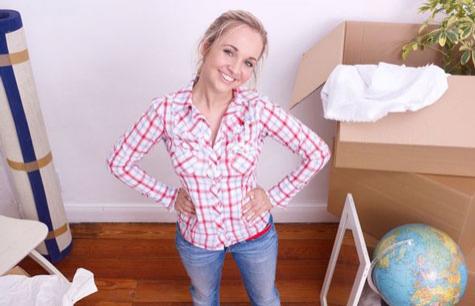Author Mary Carlomagno decided to tackle this predicament in her book, Live More, Want Less: 52 Ways to Find Order in Your Life.
"People try to make New Year's resolutions that never last," she said.
"My approach has always been to start now. There is no planetary alignment that will make this work. I wanted a set-up that is accessible all year round so you could jump in at any point and get started."
Her book features 52 topics - one for each week of the year - and is an easy read at 180 pages. It tackles the clutter in your home and your life with topics such as Opting Out, Honour Thy Memory and Be Happy, Not Right.
A short vignette is often followed by some common sense advice to take on for the week.
"I hear from people all of the time. A lot of my clients have used this book as their blueprint, a way to change their habits," said Carlomagno, a New Jersey-based consultant and founder of Orderperiod.com, a company that specialises in clutter control.
In modern society, the question of clutter has evolved into bigger lifestyle issues, she said. We often discard things before they have outlived their useful life.
"We get into the upgrading mode. This is especially true of electronics," she said.
Now, the whole philosophy of "what-we-need versus what-we-want" has become a real topic of conversation as people evaluate the societal and ecological impact of excessive consumerism.
It has also led to a rise in the use of storage units, which come with a different set of problems. Carlomagno said unfamiliarity with what is in the unit often leads owners to repurchase the same item.
In working with clients, she has found that most of the stuff in the unit is worth much less than what they pay to store it.
Another constant battle is the paper chase.
"People have a distrust of technology, so they keep a lot of paper. The internet isn't going anywhere. Paper leads to a lot of clutter, sorting and re-sorting."
So what has to happen to precipitate change?
"People get motivated by the waste of money," Carlomagno said.
One strategy is adding up the price tags of purchased, unworn clothing.
"People have thousands of dollars of unused merchandise. I tell them to return it all."
Carlomagno also suggests taking a hard look at your bank statement to see what you are spending money on.
"People don't look at their bills. They usually shop at one store a lot."
The endgame is not cleanliness but living a better life. When you've rid yourself of unnecessary things and stop the endless pursuit of buying your happiness, you have the time to start living, she said.
At the end of the year-cycle in her book, Carlomagno said users tell her they now have time for a lot of "rainy-day things", like fitness classes, painting and writing.
If she had to say one thing to anyone who is struggling, it would be this: "The most important thing is to begin. Don't get hung up on how you are going to fail or succeed."
She said that one of the best places to start is clearing stuff from the floor.
"Nothing can stifle a life more than not being able to walk through one's home."








 Agree (0)
Agree (0) Disagree (
Disagree (











__small.png)










